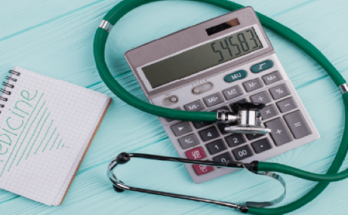Feeling unusually tired or sluggish before or during your period? You’re not alone. Period fatigue is a common but often overlooked symptom of the menstrual cycle that can affect everything from your energy levels to your emotional well-being. Period fatigue refers to the extreme tiredness or lack of energy that many women experience in the days leading up to or during their menstrual period.
While some degree of fatigue is expected during menstruation, for others it can be so severe that it interferes with daily activities, concentration, and mood. This isn’t just “being tired”—it’s a profound, persistent fatigue that can leave women feeling mentally and physically drained.
What Causes It?
Several biological and hormonal changes during the menstrual cycle contribute to this type of fatigue. Key factors include:
1. Hormonal Fluctuations
Estrogen and progesterone levels drop significantly before and during menstruation. These hormonal changes can impact mood, sleep quality, and energy levels. Estrogen, in particular, is linked to serotonin production, the brain’s “feel-good” chemical, so that a dip can contribute to feelings of tiredness and low mood.
2. Iron Deficiency
Many women lose between 30 and 40 millilitres of blood during their period. For those with heavy menstrual bleeding, iron loss can be even greater. This can lead to a temporary drop in iron levels, resulting in symptoms similar to those of anaemia, such as fatigue, dizziness, and weakness.
3. Poor Sleep
It’s hard to get good rest when you’re dealing with cramps, mood swings, bloating, or night sweats—especially in the days leading up to your period. Even minor sleep disruptions can leave you feeling completely wiped out and mentally foggy the next day.
4. Inflammation and Pain
Your body releases prostaglandins, chemicals that help your uterus contract so it can shed its lining. That’s what causes those familiar period cramps. But these contractions can also lead to inflammation and general discomfort, which only adds to the tired, worn-out feeling many women experience during their period.
5. Emotional Stress
Premenstrual syndrome (PMS) can cause irritability, anxiety, and sadness, all of which drain energy. When combined with physical discomfort, these symptoms can significantly impact mental endurance.
How to Fight Period Fatigue
Making simple, everyday changes can have a significant impact. With the proper habits, you can ease that heavy, drained feeling and start feeling more like yourself again.
Eat Iron-Rich Foods
Low iron levels can leave you feeling tired and lethargic, so consider adding foods like spinach, lentils, red meat, and pumpkin seeds to your meals. Pair them with vitamin C (e.g., oranges or tomatoes) to help your body better absorb the iron.
Stay Hydrated
Not drinking enough water can make you feel even more tired and give you a headache. Try to sip on water throughout the day, about eight glasses is a good goal—and limit your intake of caffeine and alcohol, which can dehydrate you and disrupt your sleep.
Move Your Body
When you’re feeling drained, exercise is probably the last thing on your mind—but even gentle movement like walking, stretching, or yoga can actually help. It gets your blood flowing, eases cramps and bloating, and boosts your mood thanks to those feel-good endorphins.
Prioritise Sleep
Aim for 7–9 hours of quality sleep. Create a calming bedtime routine, keep screens out of the bedroom, and consider using a heating pad or herbal teas such as chamomile to soothe cramps and support relaxation.
Reduce Sugar and Processed Foods
Sugary treats and refined carbs might give you a quick pick-me-up, but that energy doesn’t last, and the crash can leave you feeling worse. Instead, opt for slow-release carbs like oats, sweet potatoes, and whole grains to maintain steady energy and a balanced body.
Take Supplements
Some women find that taking supplements such as magnesium, vitamin B6, or iron can make a real difference in easing period fatigue. However, because everyone’s body is different, it’s always best to consult with a healthcare professional before starting any new regimen.
Track Your Cycle
Tracking your period with a calendar or app can help you identify patterns, such as when you typically feel low in energy. This way, you can plan busy days when you’re feeling your best and make time to rest when you know you’ll need it.
Talk to a Doctor
If your fatigue is severe, persistent, or accompanied by heavy bleeding or pain, it could be a sign of an underlying issue such as anaemia, endometriosis, or thyroid dysfunction. A medical consultation is the best way to rule out more serious conditions and get tailored advice.
Period fatigue is real, and you don’t have to push through it alone. Understanding your body, recognising patterns in your cycle, and making minor adjustments to your daily routine can go a long way in helping you feel more energised and in control. Affinity Health encourages women to prioritise their health by listening to their bodies and seeking support when something feels off.
With access to GP consultations, nutritional guidance, diagnostic screenings, and chronic condition management, Affinity Health enables women to take charge of their well-being throughout every phase of their cycle.




